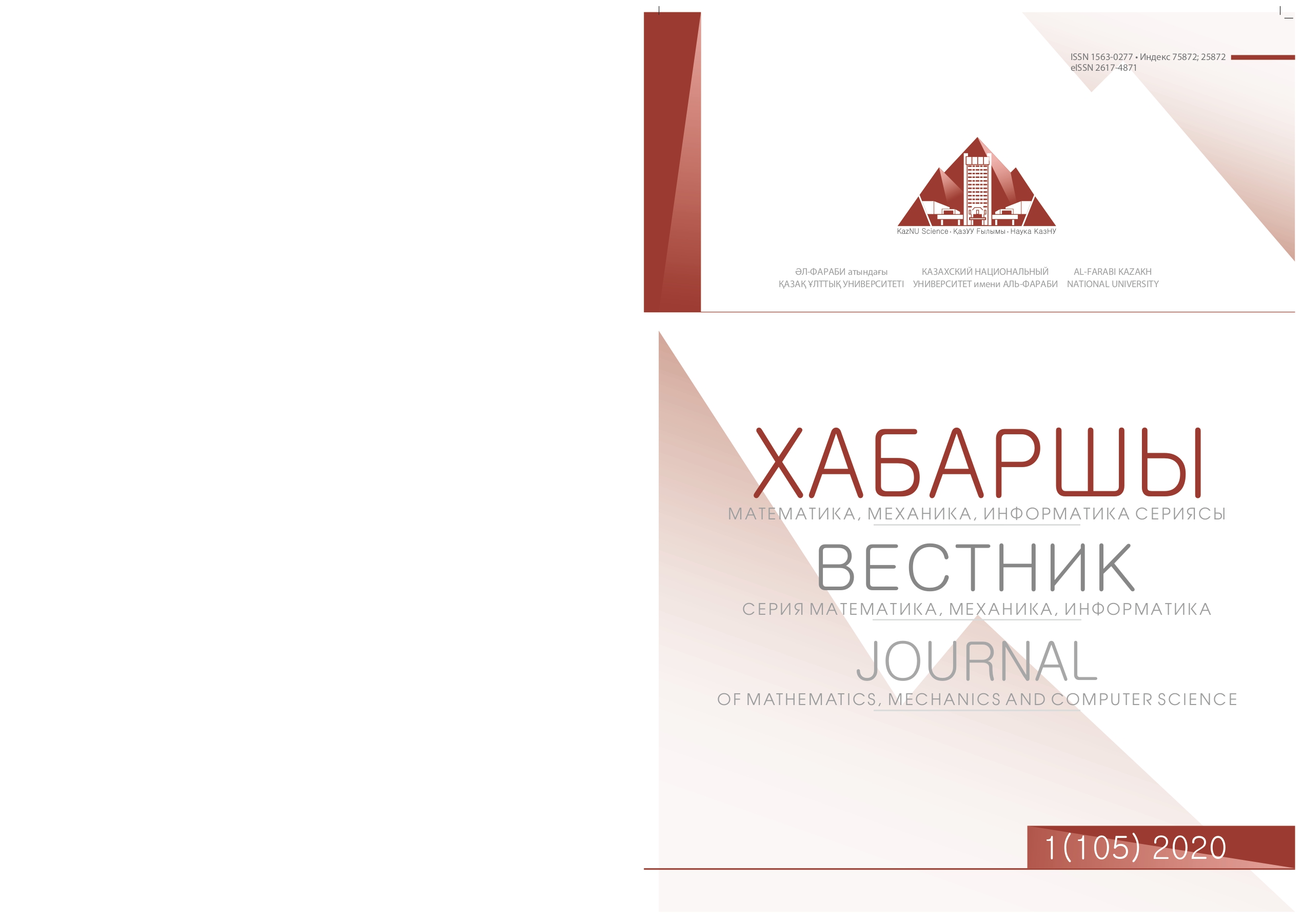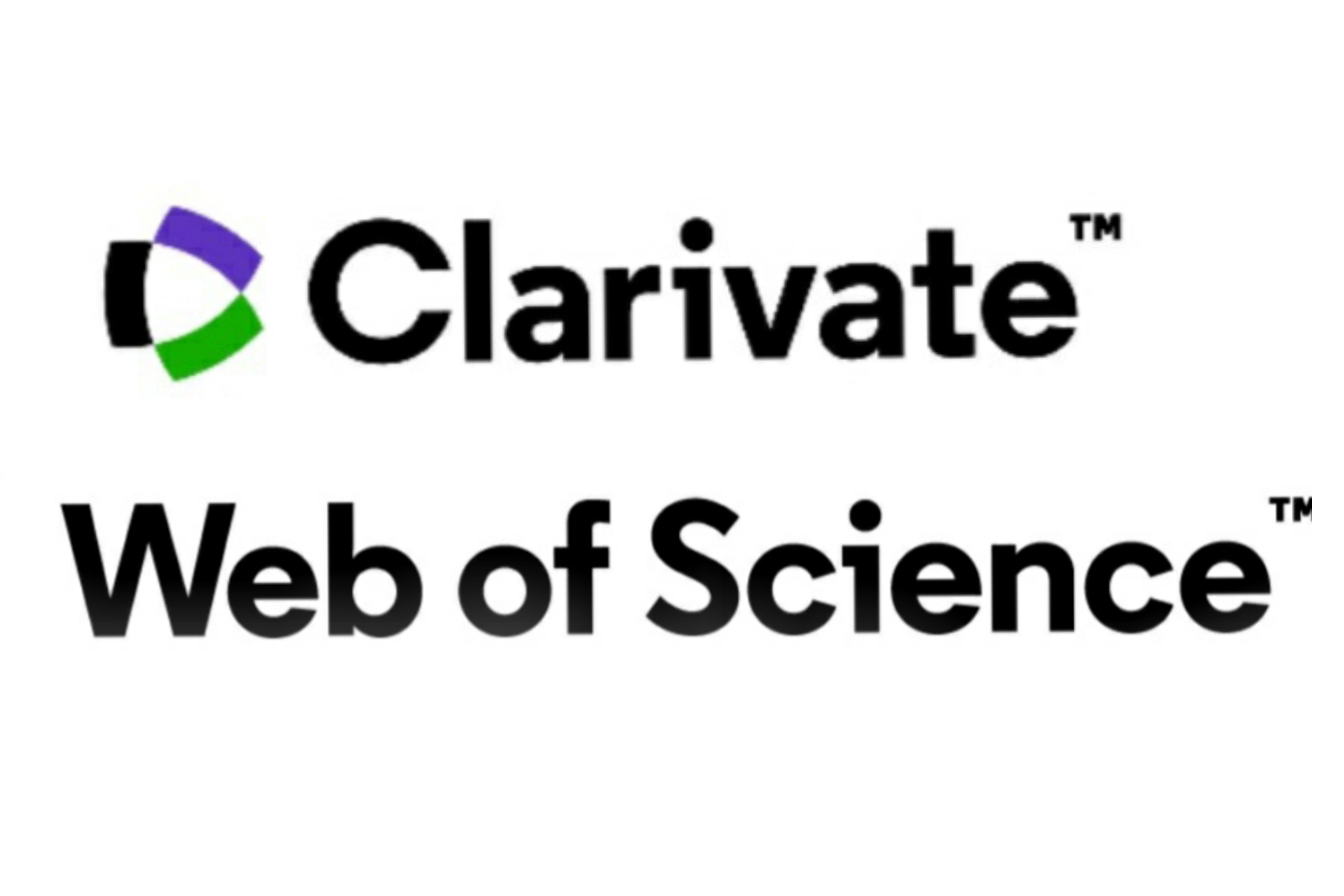Integral equation in the theory of optimal speed of linear systems with constraints
DOI:
https://doi.org/10.26577/JMMCS.2020.v105.i1.06Keywords:
Optimal performance, phase and integral constraints, holonomic relations, immersion principle, integral equationAbstract
We propose a method for solving the optimal speed problem for linear ordinary differential
equations with curve conditions from given sets in the presence of phase and integral constraints,
as well as holonomic connections. In contrast to the known methods of solving the problem of
optimal performance, a new approach to the problem of performance in the form of the principle
of immersion is developed. The immersion principle is based on the study of solvability and the
construction of a General solution of the integral equation.
The main results are:
– necessary and sufficient conditions for the existence of a solution of one class of integral equation
and the construction of its General solution;
– selection of all sets of controls, each element of which translates the trajectory of the system
from any initial state to any desired final state for linear systems;
– the proposed immersion principle allows reducing the initial boundary value problem of optimal
performance with restrictions to a special initial problem of optimal control;
– necessary and sufficient conditions for the existence of acceptable management;
– an algorithm for solving the optimal performance problem with constraints for linear systems
of any order has been developed.
The results obtained are solutions to current problems in the theory of optimal performance with
restrictions that have numerous applications.
A new metho d is develop ed for solving the problem of optimal p erformance of linear systems with
b oundary conditions, in the presence of phase, integral constraints and holonomic connections. A
General theory of b oundary value problems of optimal p erformance has b een develop ed that has
numerous applications in the natural Sciences, technology, and Economics.
The principal difference b etween the prop osed metho d and the known metho ds is that the initial
problem is immersed in the manageability problem with controls from functional spaces, and then
reduced to the initial optimal control problem.
References
[2] Alekseev V.M., Tihomirov V.M., Fomin S.V., Optimalnoe upravlenie [Optimal control] (M.: Nauka, 1979): 430.
[3] Pontryagin L.S., Boltanskiy V.G., Gamirelidze T.V., Mischenko E., Matematicheskaya teoriya optimalnyih protsessov
[Mathematical theory of optimal processes] (M.: Nauka, 1965): 384.
[4] Krasnov M.L., Integralnoe uravneniya [Integral equation] (M.: Nauka, 1975): 303.
[5] Kolmogorov A.N., Fomin S.V., Elementyi teorii funktsii i funktsionalnogo analiza [Elements of the theory of function and
functional analysis] (M.: Nauka, 1989): 623.
[6] Tihonov A.N., Arsenin V.Ya., Metodyi resheniya nekorrektnyih zadach [Methods of solving incorrect problems] (M.:
Nauka, 1968): 310.
[7] Aisagaliev S.A., "Upravlyaemost nekotoryiy sistemyi differentsialnyih uravneniy [Controllability of some systems of differential equations]" , Differentsialnoe uravnenie Vol. 27, No 9 (1991): 1037-1047.
[8] Aisagaliev S.A., Aisagalieva S.S., "Konstruktivnyiy metod resheniya zadachi upravlyaemosti dlya obyiknovennyih differentsialnyih uravneniy [Constructive method for solving the controllability problem for ordinary differential equations]" ,
Differentsialnyie uravnenie Vol. 29, No 4 (1993): 471-482.
[9] Aisagaliev S.A., Belogurov A.P., "Upravlyaemost i byistrodeystvie protsessom, opisyivaemogo parabolicheskogo uravneniem s ogranichennyim upravlenie [Controllability and speed of the process described parabolic equation with limited
control]" , Sibirskiy matematicheskiy zhuranal Vol. 53, No 1 (2012): 13-28.
[10] Aisagaliev S.A., "Optimalnoe upravlenie lineynyimi sistemami s zakreplennyimi kontsami traektorii i ogranichennyim upravleniem [Optimal control of linear systems with fixed trajectory ends and limited control]" , Differentsialnyie uravneniya Vol. 30, No 5 (1994): 748-757.
[11] Aisagaliev S.A., Kabidoldanova A.A., "Optimalnoe upravlenie lineynyimi sistemami s lineynyim kriteriem kachestva i
ogranicheniyami [Optimal control of linear systems with linear quality criterion and constraints]" , Differentsialnyie uravneniya Vol. 48, No 6 (2012): 826-836.
[12] Aisagaliev S.A., Problemyi kachestvennyоy teorii differentsialnyih uravneniy [Problems of the qualitative theory of differential equations] (Qazaq universiteti: Almaty, 2016): 397.
[13] Aisagaliev S.A. Lektsii po optimalnomu upravleniyu [Lectures on optimal control] (Qazaq universiteti: Almaty, 2007):
278.
[14] Aisagaliev S.A., Belogurov A.P., Sevryugin I.V., "Upravlenie teplovyimi protsessami [Management of thermal processes]" ,
Vestnik KazNU, ser. mat., meh., inf. No 1 (72) (2012): 14-26.
[15] Aisagaliev S.A., Sevryugin I.V., "Upravlyaemost i byistrodeystvie protsessa, opisyivaemogo lineynoy sistemoy obyiknovennyih differentsialnyih uravneniy s ogranicheniyami [Controllability and speed of the process described by a linear system of ordinary differential equations with restrictions]" , Matematicheskiy zhurnal Vol. 13, No 2(48) (2013): 5-30.
[16] Aisagaliev S.A., Sevryugin I.V., "Upravlyaemost i byistrodeystvie protsessa, opisyivaemogo obyiknovennyimi differentsialnyimi uravneniyami s ogranicheniyami [Controllability and speed of the process described by ordinary differential equations with restrictions]" , Vestnik KazNU, ser. mat., meh., inf. Vol. 14, No 3(78) (2013): 3-20.
[17] Aisagaliev S.A., Shangitova M.E., "K matematicheskoy teorii upravlyaemyih protsessov [On the mathematical theory of controlled processes]" , Vestnik KazNU, ser. mat., meh., inf. No 2 (77) (2013): 21-36.
[18] Aisagaliev S.A., "K resheniyu Nave-Stoksa dlya vyazkoy neszhimaemoy zhidkosti v neogranichennoy oblasti [To the
Navier-Stokes solution for a viscous incompressible fluid in an unbounded region]" , Vestnik KazNU, ser. mat., meh., inf.
No 1 (76) (2013): 4-21.
[19] Aisagaliev S.A., Ayazbaeva A.M., "K postroeniyu optimalnogo filtra dlya sluchaynyih protsessov [To construct an optimal filter for random processes]" , Vestnik KazNU, ser. mat., meh., inf. No 3(74) (2012) : 4-21.
[20] Aisagaliev S.A., Aisagalieva S.S., "Konstruktivnyiy metod resheniya zadachi upravlyaemosti dlya obyiknovennyih differentsialnyih uravneniy [Constructive method for solving the controllability problem for ordinary differential equations]" , Differentsialnyie uravneniya Vol. 29, No 4 (1993) 555-567.
[21] Aisagaliev S.A., "Upravlyaemost i optimalnoe upravlenie v nelineynyih sistemah. Zhurnal vyichislitelnoy tehniki i sistem
[Controllability and optimal control in nonlinear systems. Journal of computer science and systems]" , Sciences International No 32(5) (1994): 73-80.
[22] Aisagaliev S.A., Aisagalieva S.S., "Konstruktivnyiy metod resheniya zadachi upravlyaemosti dlya obyiknovennyih differentsialnyih uravneniy [Constructive method for solving the controllability problem for ordinary differential equations]" , Differentsialnyie uravneniya Vol. 29, No 4 (1993): 471-482.
[23] Aisagaliev S.A., Belogurov A.P., "Upravlyaemost i skorost protsessa, opisyivaemogo parabolicheskim uravneniem s ogranichennyim upravleniem [Controllability and speed of the process described by the parabolic equation with limited control. Siberian mathematical journal]" , Sibirskiy matematicheskiy zhurnal Vol. 53, No 1 (2012): 13-28.
[24] Zubov V.I., Lektsii po teorii upravleniya [Lectures on control theory] (M.: Nauka, 1975): 495.
[25] Gabasov R., Kiorillova F.M., Kachestvennaya teoriya optimalnyih protsessov [Qualitative theory of optimal processes]
(M.: Nauka, 1971): 480.















